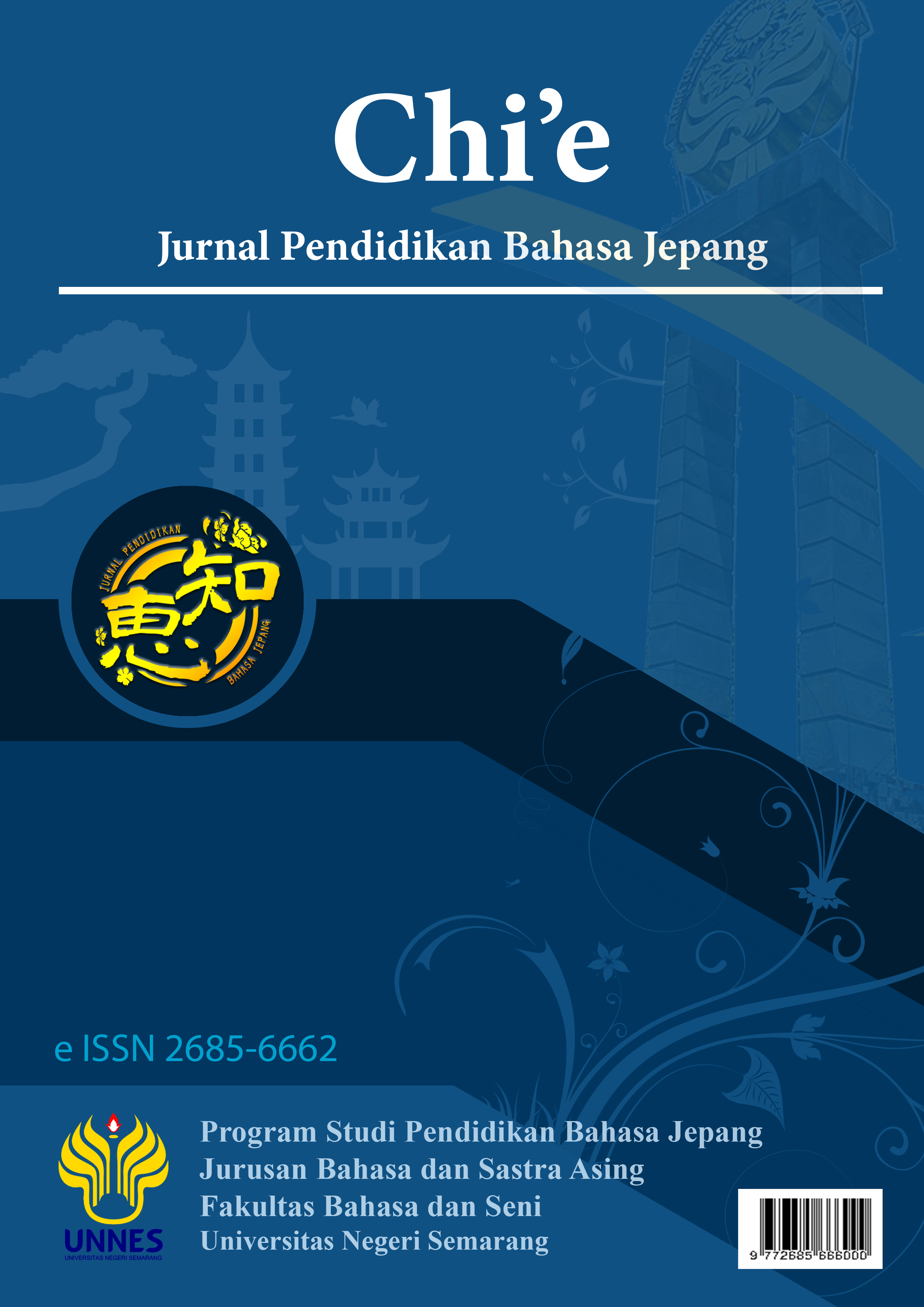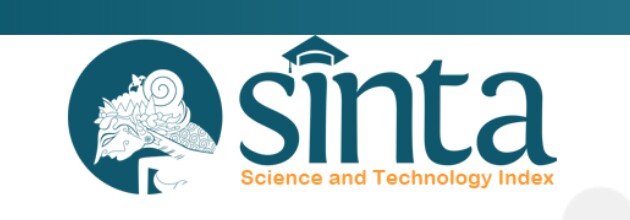Analisis Akustik Bunyi Sibilant Bahasa Jepang pada Pembelajar Bahasa Jepang di Indonesia yang Berbahasa Ibu Bahasa Jawa
Abstract
Abstract
This study aims to analyze the characteristics of Japanese sibilant sound observed from the acoustic analysis. The data of this study were in the form of sound samples from 16 respondents who spoke Javanese in Japanese language learners at the university and 8 Japanese native speakers. The respondents were asked to pronounce vocabulary containing Japanese sibilant sounds at the beginning and middle of a total of 72 words which have meaning. Then, the sample of Indonesian and Japanese respondent's sound was measured using Praat software to find their duration, intensity and Center of Gravity (CoG) of the sibilant sound. The measurement results are carried out an analysis of 2 factors, namely consonant type and sound position, using anova statistics. The duration, intensity and Center of Gravity measurement results show that the two factors (consonant type and sound position) are statistically significant. The distribution of sibilant sound duration is from 68 ms to 144 ms, and the distribution of sibilant sound intensity is from 50 dB to 60 dB. The results of the Center of Gravity (CoG) measurements show that among the learners, the CoG values ​​are in the average range of /s/ = 7 kHz, /z/ = 6 kHz, /ɕ/ = 5 kHz, and /ʑ/ = 4 kHz, while among the native speakers, the CoG values ​​are in the average range of /s/ = 8 kHz, /z/ = 8 kHz, /ɕ/ = 6 kHz, and /ʑ/ = 6 kHz.
Key words: (a) acoustic analysis, (b) Japanese sibilant, (c) duration, (d) Center of Gravity (CoG)















